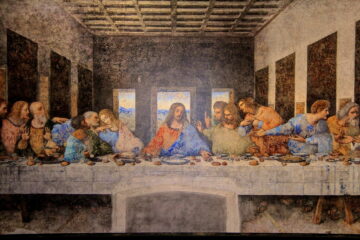Every action begins in silence. Before a word is spoken or a deed performed, our mind gathers the seeds of choice. The Law of Human Ability teaches that every movement of our will unfolds through three stages: thought, word, and action. Jesus warns us plainly: “…we already sinned in our mind” when we entertain lustful desires. In the Kingdom of God, the battlefield is first within our hearts, for the smallest thought shapes the life that follows.
Catholic doctrine holds that sin is not only an outward violation but also an inner disorder. When we consent to a sinful thought, lingering on envy, lust, or pride, we stain our soul even before a word crosses our lips, expressing our desires. Jesus’ stern teaching shows that purity begins in the imagination and in the intent of our heart. By calling interior consent a sin, He makes clear that holiness demands vigilance at the level of thought itself.
Of course, not every passing image or fleeting idea carries moral weight. The Church distinguishes between involuntary distractions and willful consent. A momentary temptation needs not condemn us; it is the deliberate nurturing of that temptation, the refusal to reject it, that darkens our conscience. True freedom arises when we refuse to dally with what corrupts and instead turn our mind toward what uplifts.
Once a thought takes shape, it seeks expression. Words give it voice, and actions bring it into the world. A single hate-filled thought may seem harmless, yet it plants a thorn in the soul’s garden. Words of slander or bitterness soon grow roots, and the fruit that soon grows into deeds can wound or even kill others, fracturing families, communities, and even a Country. In this light, Jesus’ insistence on interior purity reveals His understanding of our nature and the deep care He has for humanity.
How, then, do we guard this stillness where every choice begins? First, by cultivating an interior life rooted in prayer. A brief morning offering, a nightly examen, or a heart-felt act of contrition can sweep away the ashes of impure thoughts. Second, by feeding our minds with Scripture and sacred truths like this. The more we gaze at what is true, good, and beautiful, the less room we leave for harmful vice.
We are not left alone in this struggle. The sacraments, especially Confession and the Eucharist, are God’s highways of grace into our wounded hearts using the Law of Human Abilities. In confession, we thoughtfully exam our inward stains, put them to words, and a priest, acting in Jesus’ name, forgives and absolves us of our sins, restoring our innocence. In the Eucharist, our communion with Christ strengthens and renews our interior freedom, emboldening us to reject every temptation.
Remember: a single thought is like a spark in a dry forest, it can ignite a blaze or be stamped out underfoot. When you sense a destructive idea taking root, uproot it immediately. Redirect your imagination toward acts of charity, mercy, and selfless love. In doing so, you transform your mind into a sanctuary where God’s light can dwell unhindered.
Let us strive each day to master the invisible realm of thought. By intercepting sin at its source, we free our words and actions to bear witness to Christ’s love. In this way, the Law of Human Ability becomes our path to holiness: a reminder that every virtuous life begins in the sacred silence of a guarded heart.
If this is my last post, I want all to know there was only one purpose for all that I have written; to have made a positive difference in the lives of others.
Anthony “Tony” Boquet, Certified Professional Business Coach, A Modern Solutionary, the author of “The Bloodline of Wisdom, The Awakening of a Modern Solutionary” and “The Passion, Death, and Resurrection of Jesus Christ, A Devotional Timeline”














